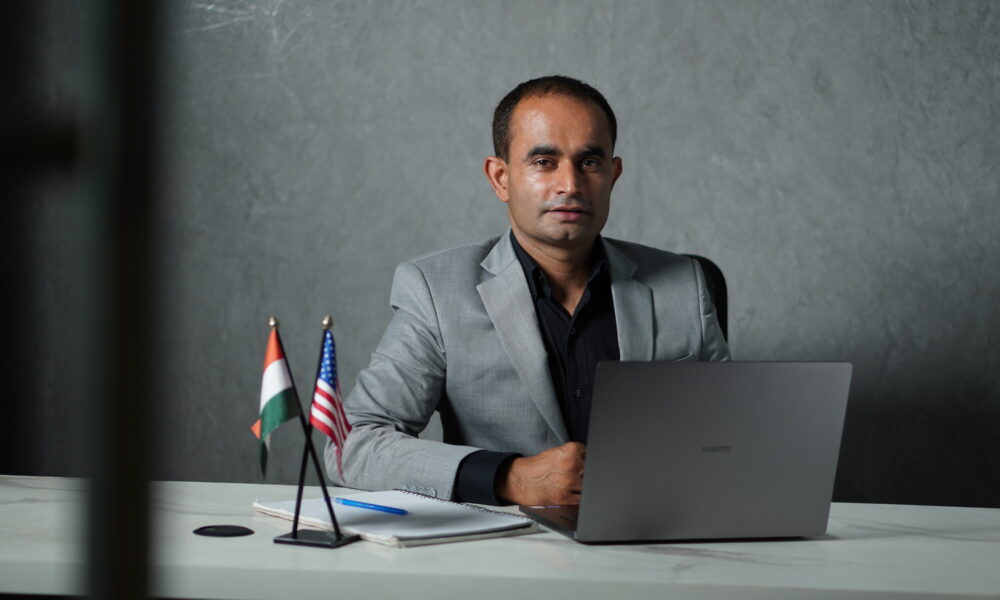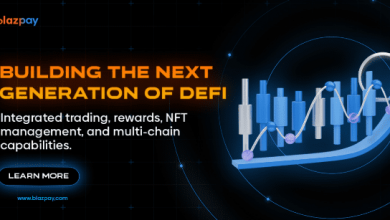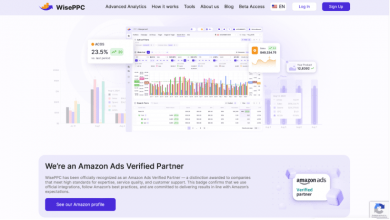From Problems to Possibilities – The Mindset Behind Sabeer Nelli

Behind every innovative company lies a mindset that transforms challenges into opportunities. At ZilMoney.com, this mindset is personified by Sabeer Nelli, whose ventures span gas stations, fintech platforms and regional development projects. His approach is not about chasing the next big thing; it is about looking at problems and asking how they can become the seeds of something better.
Finding opportunity in frustration
The genesis of OnlineCheckWriter.com – powered by Zil money.com came when Nelli realized that printing checks manually was costing time and peace of mind. Rather than complaining, he saw an opportunity to build a tool that would eliminate the need for expensive check stock and specialized printers. This willingness to see problems as prompts for innovation is the foundation of his mindset.
Discipline as the engine of change
Transforming a problem into a solution requires discipline. Bootstrapping forces entrepreneurs to focus on what matters. Nelli prioritized features that delivered real value to customers, delaying additions that did not directly reduce pain points. This disciplined approach ensured that resources were invested wisely and that each iteration of his products responded to genuine needs.
Using obstacles as blueprints
Obstacles often point the way forward. When payment providers froze his account without explanation, Nelli built his own payment infrastructure. When he observed a talent exodus from his hometown, he created Silicon-Jeri to provide opportunities. Each hurdle became a blueprint for a new venture, demonstrating that the problems we encounter can reveal unserved markets and hidden potential.
Drawing from everyday experiences
Innovation does not have to start with grand vision statements. It is noted that Nelli’s creativity emerged from the mundane tasks that others overlooked—balancing invoices, reconciling payments and managing payroll. By immersing himself in daily operations and listening to his own frustrations, he discovered insights that outside observers might miss. Entrepreneurs who remain close to the details of their business are more likely to spot opportunities for transformation.
Designing systems that adapt
The problem-solving mindset extends to product design. Zil.US Money’s modular architecture allows businesses to grow from basic check printing to advanced international payments without switching platforms. This adaptability ensures that the solution does not become obsolete as users’ needs evolve. Similarly, Silicon-Jeri is scalable, designed to accommodate more startups and jobs as the local economy expands. Designing with flexibility in mind allows innovations to remain relevant long after their initial problems are solved.
Sharing the mindset
Nelli uses his platform to encourage others to adopt a problem-to-possibility perspective. Through speaking engagements and articles, he talks about turning frustrations into fuel for progress. By sharing both successes and failures, he demystifies innovation and empowers others to tackle their own challenges. This openness fosters a culture where people feel inspired to explore and build rather than accept the status quo.
Connecting problems to purpose
Many entrepreneurs are driven by profit, but Nelli’s mindset ties problems to purpose. Solving payment frustrations made life easier for millions of entrepreneurs. Building Silicon-Jeri created opportunities for his hometown. By aligning business solutions with positive social outcomes, he ensures that his ventures deliver more than financial returns.
Focusing on the human element
Even as he builds sophisticated fintech platforms, Nelli remains focused on the humans who use them. User-centric design, proactive support and community investment are all expressions of his belief that technology should serve people. This human-centric mindset helps him prioritize features that genuinely improve lives, rather than those that simply showcase technical prowess.
Resilience and adaptability
Turning problems into possibilities requires resilience. Business environments change, regulations shift and unexpected crises like pandemics occur. Nelli’s companies have thrived by adapting quickly—introducing features to support remote payments and scaling infrastructure to meet surging demand. This adaptability stems from a mindset that expects challenges and sees them as opportunities to innovate further rather than as reasons to retreat.
Conclusion
The mindset driving ZilMoney.com is a compass that consistently points from problems toward possibilities. It is rooted in discipline, resilience, empathy and a deep belief that innovation should serve people and communities. By seeing obstacles as blueprints and designing adaptable solutions, Sabeer Nelli demonstrates that the most profound innovations often arise from the frustrations we experience every day. His journey reminds us that entrepreneurship is less about chasing ideas and more about courageously responding to the challenges right in front of us.
Another aspect of the problem-to-possibility mindset is experimentation. Nelli encourages his teams to test ideas through prototypes and pilot programs. If an experiment fails, the lesson learned informs future projects. This iterative approach creates a safe space for creativity while ensuring that resources are not wasted on untested initiatives.
Storytelling also plays a role in shaping mindset. By sharing stories of challenges overcome—like the early days of Tyler Petroleum or the creation of Silicon-Jeri—Nelli inspires others to reframe their own obstacles. Narratives provide context and humanize the abstract concepts of perseverance and innovation.
Finally, the mindset emphasizes long-term impact. Rather than seeking quick wins, Nelli invests in projects that will benefit businesses and communities for decades. This perspective encourages patience and fosters a sense of responsibility to future generations. Entrepreneurs who adopt this mindset look beyond quarterly results to consider how their decisions will shape the world.
Moreover, the problem-to-possibility mindset fosters personal growth. Entrepreneurs who embrace this perspective develop resilience, creativity and empathy—traits that enrich their personal and professional lives. They learn to see value in setbacks and to cultivate patience when results take time to materialize. This growth mindset benefits not only their businesses but also their relationships and communities.
A continuous improvement ethos complements the mindset. Nelli encourages periodic reflection, asking what worked, what did not and why. This introspection helps refine strategies and avoid repeating mistakes. By continually iterating on the problem-to-possibility approach, entrepreneurs can improve their processes and outcomes over time.
In practice, adopting this mindset requires founders to cultivate empathy—for their users, employees and communities. It means listening more than speaking, experimenting without fear and persisting through uncertainty. By seeing problems as opportunities to serve, entrepreneurs can create businesses that not only succeed but also contribute meaningfully to society.
The greatest gift of the problem-to-possibility perspective is hope. It assures innovators that obstacles are not roadblocks but stepping stones. It encourages us to approach challenges with curiosity and optimism, knowing that within every difficulty lies the potential for remarkable solutions and positive change.
Ultimately, the problem-to-possibility mindset invites us to view entrepreneurship as a journey of service, where solving real problems becomes the path to both personal fulfillment and societal advancement.





